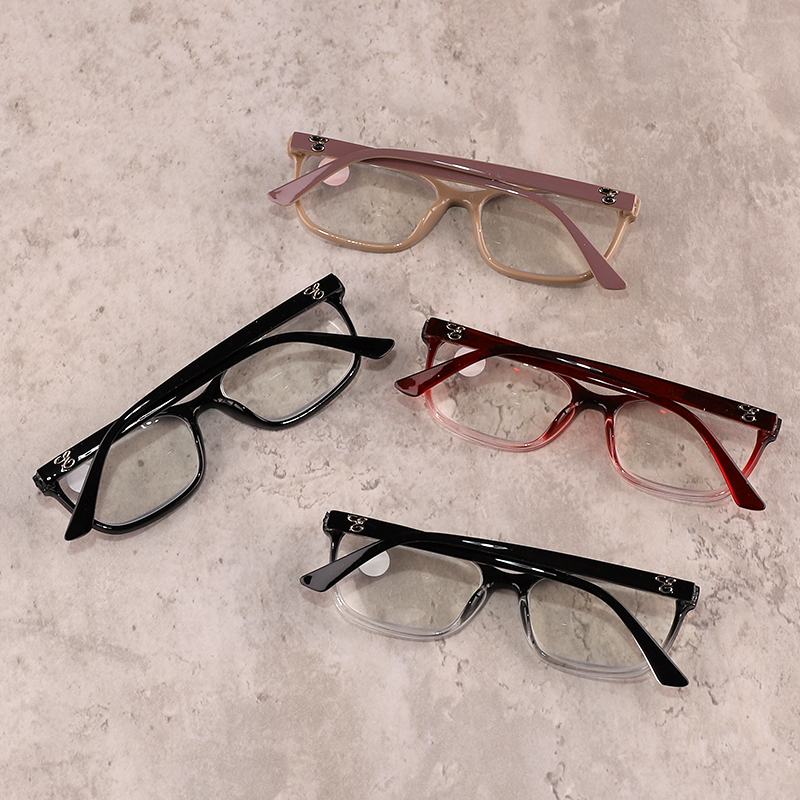



Blue light is a high-energy, short-wavelength light within the visible light spectrum, roughly between 400 and 490 nanometers. It is naturally present in sunlight, and it plays an important role in regulating our circadian rhythms, mood, and alertness. However, artificial sources such as LED screens, fluorescent lighting, and digital devices emit a substantial amount of blue light as well.

Extended exposure to artificial blue light, especially in the evening or in poorly lit environments, can contribute to digital eye strain, discomfort, and potentially disrupt natural sleep patterns by interfering with the production of melatonin, the hormone responsible for regulating sleep. These concerns have led to the development of blue light blocking technologies, including specially designed glasses.
Blue light blocking reading glasses are eyeglasses with lenses treated or manufactured to filter out a portion of blue light emitted from screens and artificial light sources. Unlike regular reading glasses that primarily focus on magnifying close-up text to assist with presbyopia (age-related difficulty in seeing close objects), blue light blocking reading glasses combine vision correction with blue light filtering.
The lenses in these glasses typically have a subtle yellowish or amber tint, although some newer technologies have managed to minimize visible color change while still filtering blue light effectively. The goal is to reduce the intensity of blue light reaching the retina, which may help reduce eye fatigue, dryness, and discomfort caused by prolonged screen use.
The lenses in blue light blocking reading glasses contain filters that absorb or reflect blue light wavelengths. These filters can be incorporated in several ways:
Coatings: A thin anti-reflective coating applied on the lens surface reflects blue light away from the eyes without significantly affecting the overall appearance of the lens.
Tints: Some lenses have a slight tint that absorbs blue light. These are often more noticeable but can provide higher levels of blue light reduction.
Material Composition: Certain lens materials inherently block or absorb a portion of blue light, combined with coatings or tints for enhanced protection.
When worn during reading or screen use, these glasses reduce the blue light exposure and potentially alleviate associated symptoms.
Many users find several practical benefits when using blue light blocking reading glasses, especially during prolonged close-up tasks involving screens:
Reduced Digital Eye Strain: Blue light blocking lenses can help ease symptoms of digital eye strain, such as eye fatigue, dryness, headaches, and blurred vision. By reduce blue light exposure, the eyes do not have to work as hard to focus on screens.
Improved Visual Comfort: The lenses can reduce glare and improve contrast, making screen viewing more comfortable and less tiring over long periods.
Better Sleep Quality: Since blue light can suppress melatonin production, wearing blue light blocking glasses in the evening may help maintain normal sleep cycles by reducing blue light's disruptive effect.
Convenience for Reading: For people who require reading glasses, combining blue light blocking technology with magnification lenses eliminates the need to switch between different pairs of glasses for reading and screen use.
While these glasses offer several benefits, there are some important factors to consider when deciding if they are the right choice:
Degree of Blue Light Blocking: Not all glasses block the same amount of blue light. Some block only a small percentage, while others block more. Users should choose based on their exposure levels and sensitivity.
Lens Tint: Some people may prefer lenses with minimal tint for aesthetic reasons, especially if they plan to wear them throughout the day.
Prescription Compatibility: Those who need vision correction should ensure their blue light blocking glasses can be customized with their correct reading or prescription lenses.
Scientific Evidence: While many users report subjective benefits, research on the long-term effects of blue light blocking glasses is ongoing. The glasses are generally safe and may improve comfort but are not a cure-all for eye health issues.
Proper Screen Use Habits: Blue light blocking glasses are effective when combined with healthy screen habits such as taking regular breaks, adjusting screen brightness, and maintaining proper viewing distance.